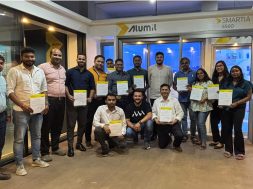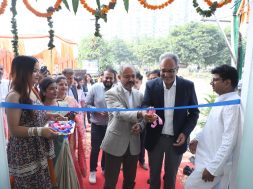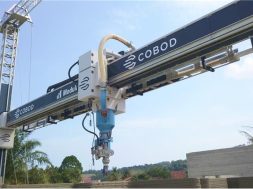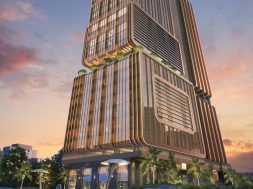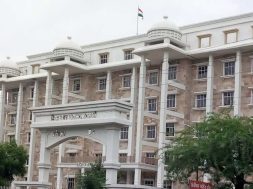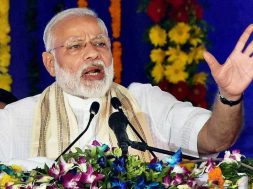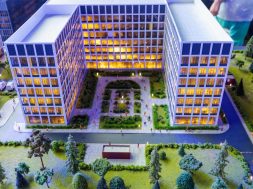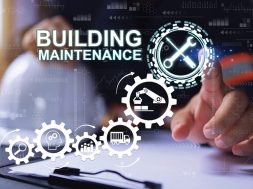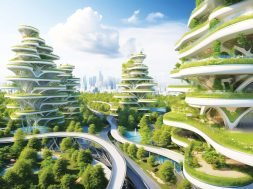Hafeez Contractor: the starchitect of India
Hafeez Contractor is India’s starchitect and an inspiration for many. If Bollywood ever fails to find a rags-to-riches story, the film industry can adapt the story of Hafeez Contractor who once lived in a single-room house but went on to design India’s tallest building. Given the opportunity, he believes, he could even design the world’s building — Burj Khalifa — much better. He is helping to create the face of 21st-century India. In a breezy evening at his office, he sat with Dibyendu RoyChowdhury and shared his upbringing, success mantra, journey to the top, and why India needs smart cities. You had started in 80s with only two people; now you are the face of architecture in India. How do you define your journey in architecture?It is like you have to keep on moving. Every day I think that the journey has just started, and this is how I define it.
You had stayed in Manhattan while studying at Columbia University. How did this experience influence you?That was a very crucial time, and I feel that one year at Columbia University taught me numerous things. It has taught me how to analyse things and how to look at the future. I feel I was very lucky to be at Columbia and have the right kind of teachers and professors who exposed me to the right things. In order to do anything, you have to understand the tradition which means you have to understand the history. History teaches you how things have gone right and how things have gone wrong. We need to study the history as well as the present. We need to analyse everything and do what is required.
Recently, you have said that you are the real architect of slum-development policies. How do you describe this term?I intensely feel for people who don’t have houses. I feel this because when I was young I used to live with my mother in a room and a kitchen. I couldn’t get married for so many years because I never had a house. I know the difficulties of people not having a house. I had only one-room house, and I couldn’t invite any of my friends to my house.I think this is our duty to see that people get a shelter and why they don’t have a house. Why others have a house is only economic reasons and an economic reason is created. I had gone to Sureshdada Jain who was the former minister for housing and gave an idea of how people in slums could get house free of charge. He took me to Balasaheb Thackerayand I can tell you I have full respect for Balasaheb Thackeray who was the only person who said I wanted to do this. That’s why we have this policy of slum redevelopment and millions of people have got free houses. I am very proud that I was the person who had instrumental in doing that.
You have also submitted a plan to build the Patna Smart City. What’s the status of that plan?That plan is not being implemented. I think that will be the right place to build a smart city; unfortunately, all good plans don’t see the light.
The new central government is also planning to build 100 smart cities. What is your opinion?When Narendra Modi is speaking that he wants to build 100 smart cities, I am very happy. What’s the definition of smart cities is a big question. However, I congratulate him and lend full support to him. The future of India is in its cities. I would also say that the future of the world is how we in India develop our cities because that is going to determine the global footprint. If we develop our cities in wrong way, we will occupy our land. If we waste our land, it will affect the environment.
It is a big responsibility for the people of India how we are going to develop our cities. We cannot just take farm land and develop cities. We have to develop dense cities with concentrated infrastructure and public transportation. We have to get away from the car oriented cities; we have to get away from all that. We should have underground metro service.
The talk of the industry is green building. What is your view on that?Green building is just a tip of the iceberg. You don’t have to talk about green building; you have to talk about green cities. When you talk about a green building, it only says how you are going to conserve energy and how you are going to place your building so that it does not heat the building. Yes, it is doing something, but what it is doing is just the tip of the iceberg. Green building should go a step forward — the way you utilise it and how you utilise it. If we are able to achieve this, it would be really green. Today if I take a 10-acre land, build a 50,000 sq. ft. building, and satisfy all green norms, I will get a green rating. To me, this is not the right thing. If you are not doing it the right way neither utilising the potential of the land, you are not exploiting the potential.
Aspiring architects consider you as their hero. How do you feel about that?I think this is a big responsibility. Somebody is saying I am a hero will not be something to be really happy about. It is something to be seriously thinking about it. What you do, how you do, and if they are looking at you. It is like when I was a kid, I could do anything. Whatever I say or whatever I do sets a pertinent. It is very important when people are considering me as someone to be looked upon. Everything what I do I have to think hundred times before doing it. A lot of kids feel they will achieve overnight success, but there is nothing like overnight success. To me overnight success is 10 years of hard work. If you are looking for an overnight success, you are on a wrong track. I would also say that don’t run after money, run after work, and run after creating something and doing something. Money is a by-product and will fall off. If your sole purpose in life is to run after money, you will be missing out everything. To be very frank, money is not everything. Yes, it is very important. If you don’t have it and you have everything else, it is also not a very nice thing. You need to have a balance of both.
What do you think about public-private partnership?In every project — be it government or private — it is the person who is at the top makes the difference. You will find private partnerships which have failed, and you will see so many which have succeeded. You will find so many government jobs which have failed, also some which have succeeded.
What are the prime aspects that you look at before taking any project? I just look at the project and see what the person wants to do and how I meet his expectations in the best way. I don’t look at it as whether it suits me or no. Someone has come with the project, and it is my job to deliver what he wants.
Which are the projects that are close to your heart? Every project that I do is close to my heart. When clients themselves don’t take an interest in the project that is when I don’t like it.
Is there any project that you wished you could have designed?I wish I would have done Burj Khalifa. I would have designed Burj Khalifa much better — the shape, the form. That building could have been better, and I can say it with confidence.
43
Cookie Consent
We use cookies to personalize your experience. By continuing to visit this website you agree to our Terms & Conditions, Privacy Policy and Cookie Policy.
